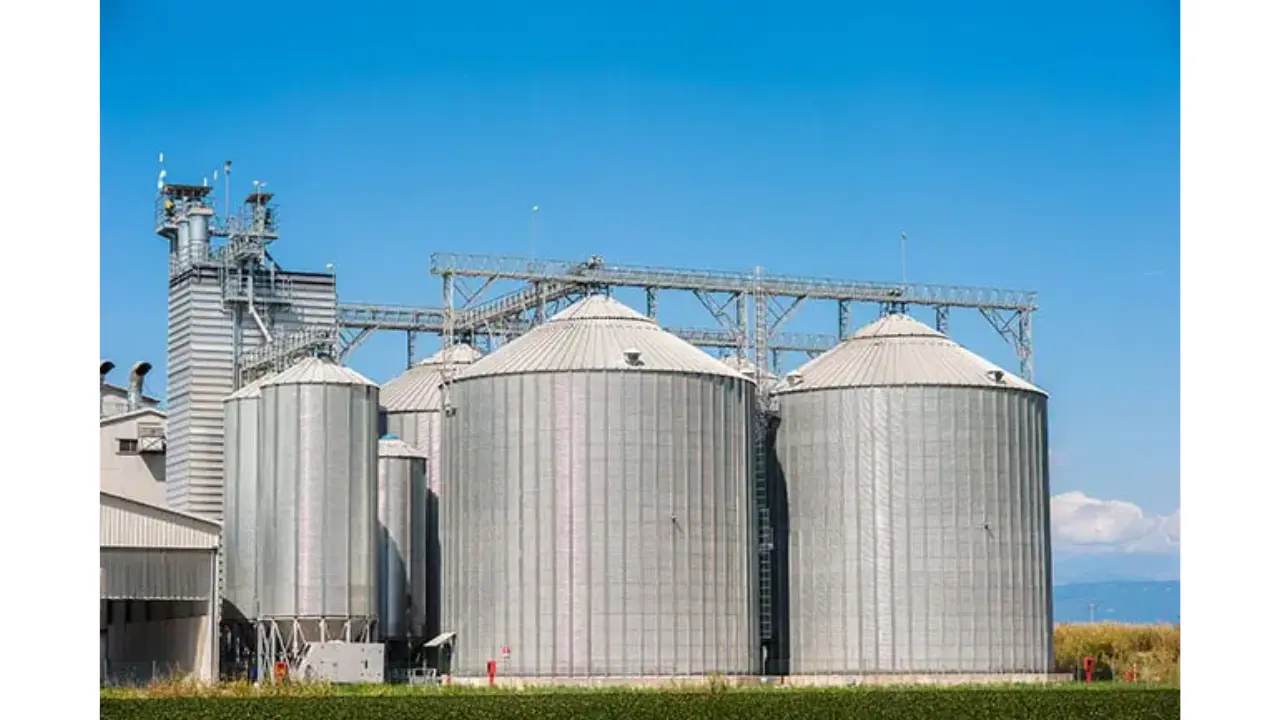Proper grain storage is important for farmers and agribusiness owners to maintain the quality and longevity of their crops. An agricultural silo plays a crucial role in protecting grains from pests, moisture, and temperature fluctuations. However, with various types of silos available, choosing the best one for your farming needs can be challenging.
In this blog, we will explore the different types of agricultural silos, their advantages, and how to select the right one for your farm.
What is Agricultural Silo?
An agricultural silo is a structure used to store bulk materials like grain, fermented feed, and other food products. Silos are important for agriculture because they help preserve feed for livestock and extend the shelf life of crops.
- Protect stored materials from external elements
- Ensure quality for future use
- Provide a consistent supply of feed throughout the year
- Manage harvests and distribute feed more effectively
Types of Agricultural Silos
Flat Bottom Silos
Flat bottom silos are used to store materials like grain, oil seeds, cement, and fly ash. They can be used for short-term or long-term storage.
Uses
- Flat bottom silos are used for bulk and long-term dry storage
- They are recommended for grain storage above 500MT capacities
- They can be used for cement storage, fly ash storage, and other materials that require a fluidity system
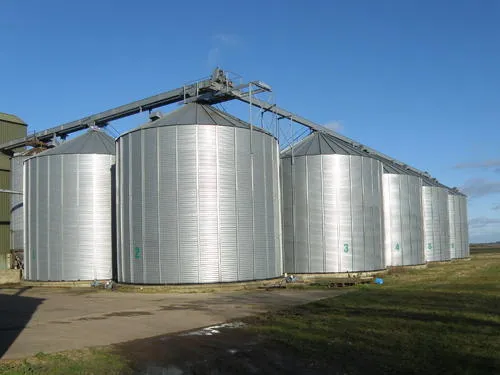
Hopper Bottom Silos
A hopper bottom silo is a type of storage silo that features a conical or funnel-shaped bottom, designed to allow materials like grains, fertilizers, or animal feed to flow easily towards the discharge point at the bottom using gravity, essentially self-emptying without the need for additional unloading mechanisms; making it ideal for situations where frequent unloading is required or materials tend to clump together. These Silos are Commonly used in agriculture for storing grains, feed pellets, and other bulk materials in industries like poultry farms, rice mills, and feed mills.
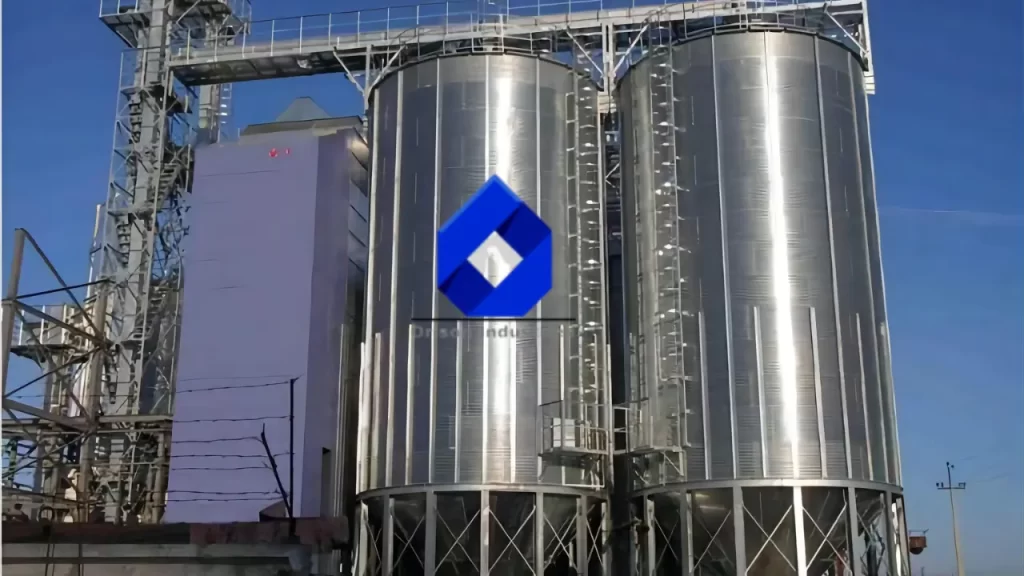
Tower Silos
A tower silo is a tall, cylindrical structure that stores bulk materials like grain, silage, and cement. They are often made of concrete or steel, and are built above ground.
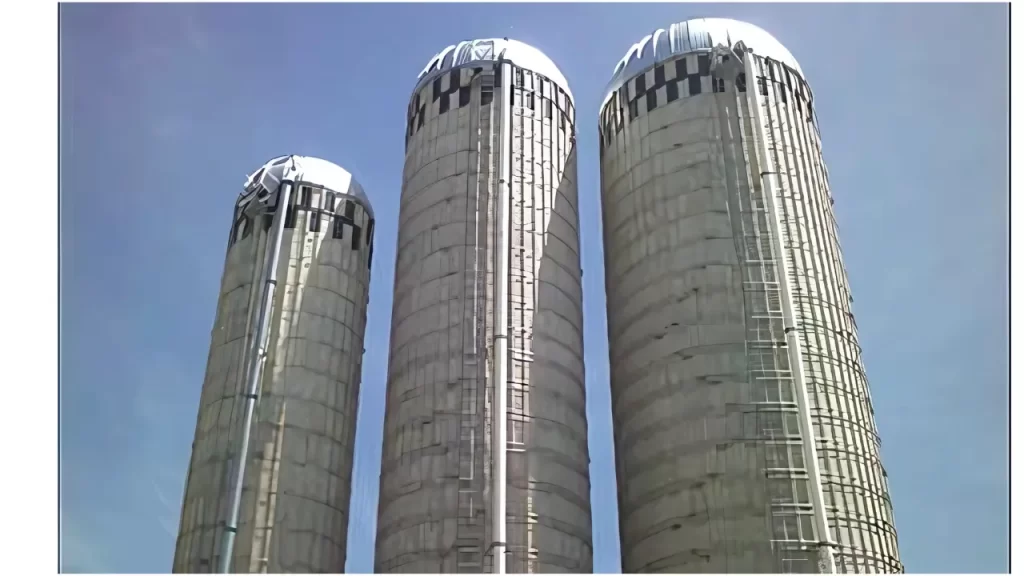
Bag Silos
A bag silo is a plastic tube used to store bulk materials like grain, seeds, and by-products. They are also known as grain bags, sausage bags, or silo bolsas.
How to use bag silos
- Select a suitable surface
- Prepare the equipment
- Set up the silo bag
- Fill the silo bag
- Seal the silo bag
- Monitor and maintain
- Unload the silo bags
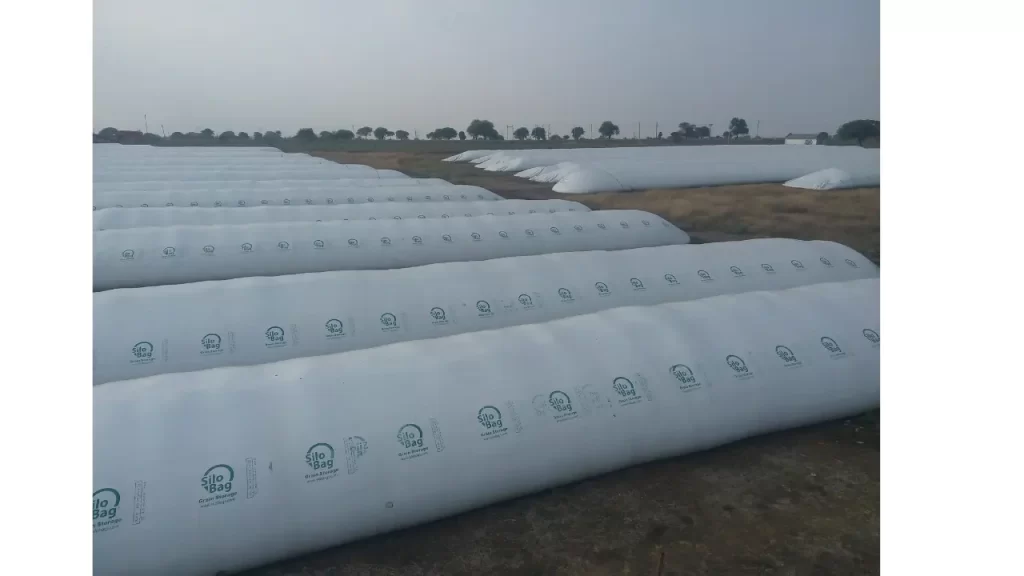
Bunker Silos
A bunker silo is a large, shallow trench or bin used to store bulk materials like grains, coal, cement, and silage. Bunker silos are usually located outside of a building.
Advantages: Large capacity, Inexpensive, Can be filled with conventional farm equipment, and Offers faster unloading rates.
Metal Silos
A metal silo is a large, cylindrical storage container typically made of steel, used to store bulk materials like grains, cement, or other powders, providing protection from environmental factors like moisture and pests by creating an airtight seal; essentially, it’s a metal bin designed for large-scale storage of dry materials, often seen in agricultural settings for grain preservation.
Benefits:
- Protects stored materials from pests and weather elements
- Allows for long-term storage
- Enables controlled release of stored materials
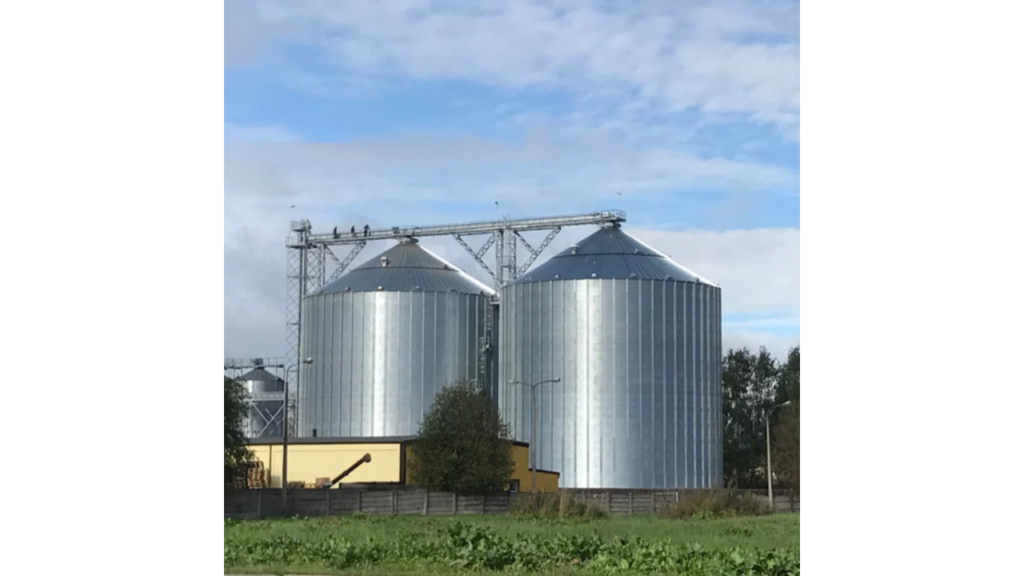
Purpose-Built Silos
These silos are storage structures and designed to store bulk agricultural products like grains and silage. They are engineered to create optimal storage environments and improve operational efficiency.
Concrete Silos
Concrete silos are used for storing various materials like grain, coal, and other industrial products. They are constructed from reinforced concrete. These silos are known for their durability and long service life, and they typically last over 50 years.
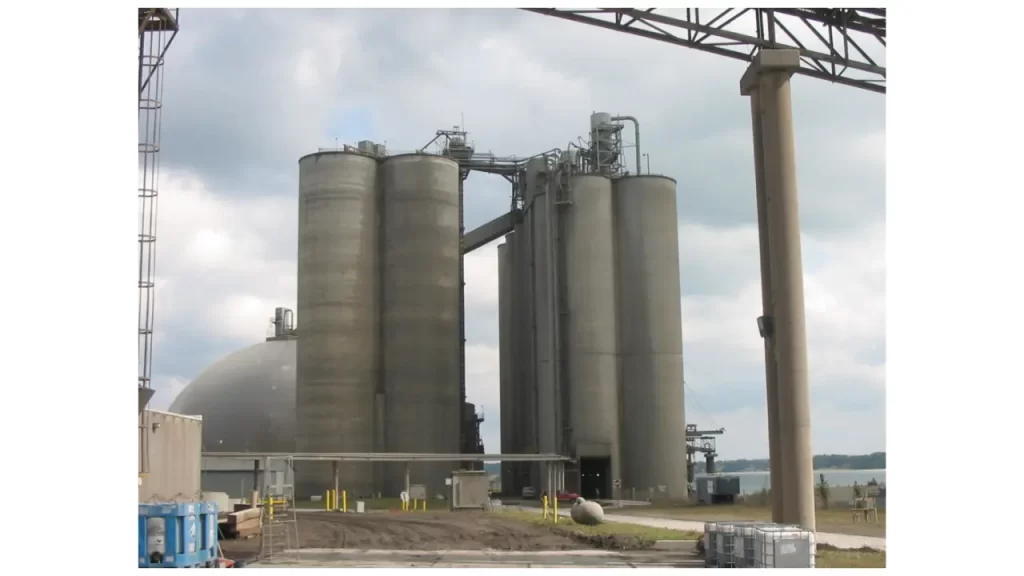
Wooden Silos
Wooden silos are the earliest form of silo structures in history. These silos are mostly used in granaries and farms. While they are not as commonly used today, many old wooden silos have been restored and transformed into interesting attractions. These silos were usually built from wood and had either a cylindrical or polygonal shape.
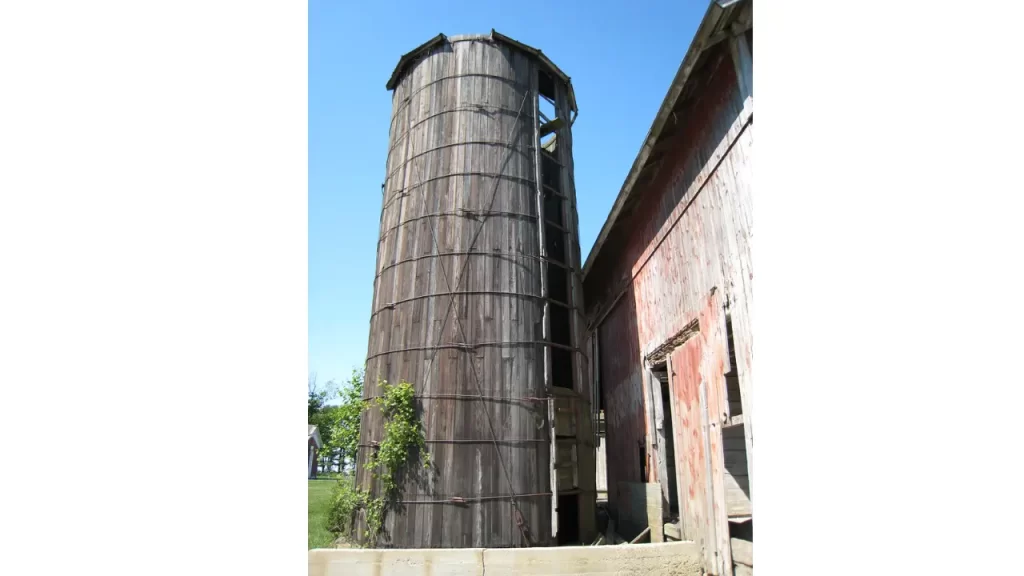
Factors to Consider When Choosing an Agricultural Silo
To select the best agricultural silo for your farming needs, consider the following factors:
- Storage Capacity
Determine the volume of grains or feed you need to store.
Choose silos that allow for expansion as your farming operations grow. - Type of Crops or Feed
Different silos are suitable for grains, silage, and other agricultural products.
Ensure the silo you choose preserves the city ability of your stored products. - Climate and Weather Conditions
Opt for weather-resistant silos in areas prone to high humidity or extreme temperatures.
Proper aeration and moisture control systems are essential to prevent spoilage. - Budget and Installation Costs
Consider your budget for purchasing and installing the silo.
Factor in maintenance costs for long-term efficiency. - Ease of Loading and Unloading
Hopper bottom silos offer easy unloading, while flat bottom silos require mechanical extraction.
Choose a design that suits your grain handling and distribution process.
Why Choose Orison Industries for Agricultural Silos?
Orison Industries specialize in manufacturing high-quality agricultural silos designed to meet the needs of modern farming. Our silos are built with durable materials, advanced aeration systems, and customizable storage capacities to suit different agricultural requirements.
Our Advantages:
- Wide range of customizable silo designs.
- High-quality stainless steel and galvanized steel construction.
- Advanced moisture control and aeration technology.
- Affordable pricing with long-term durability.
- Expert guidance on silo selection and installation.
Selecting the right agricultural silo is crucial for maintaining grain quality and ensuring efficient storage. Whether you need a flat bottom silo for bulk storage or a hopper bottom silo for quick unloading, choosing the right type will enhance your farming operations.
For top-quality agricultural silos, contact us to learn more about our services. Our expert team will help you find the perfect storage solution for your farming needs!


